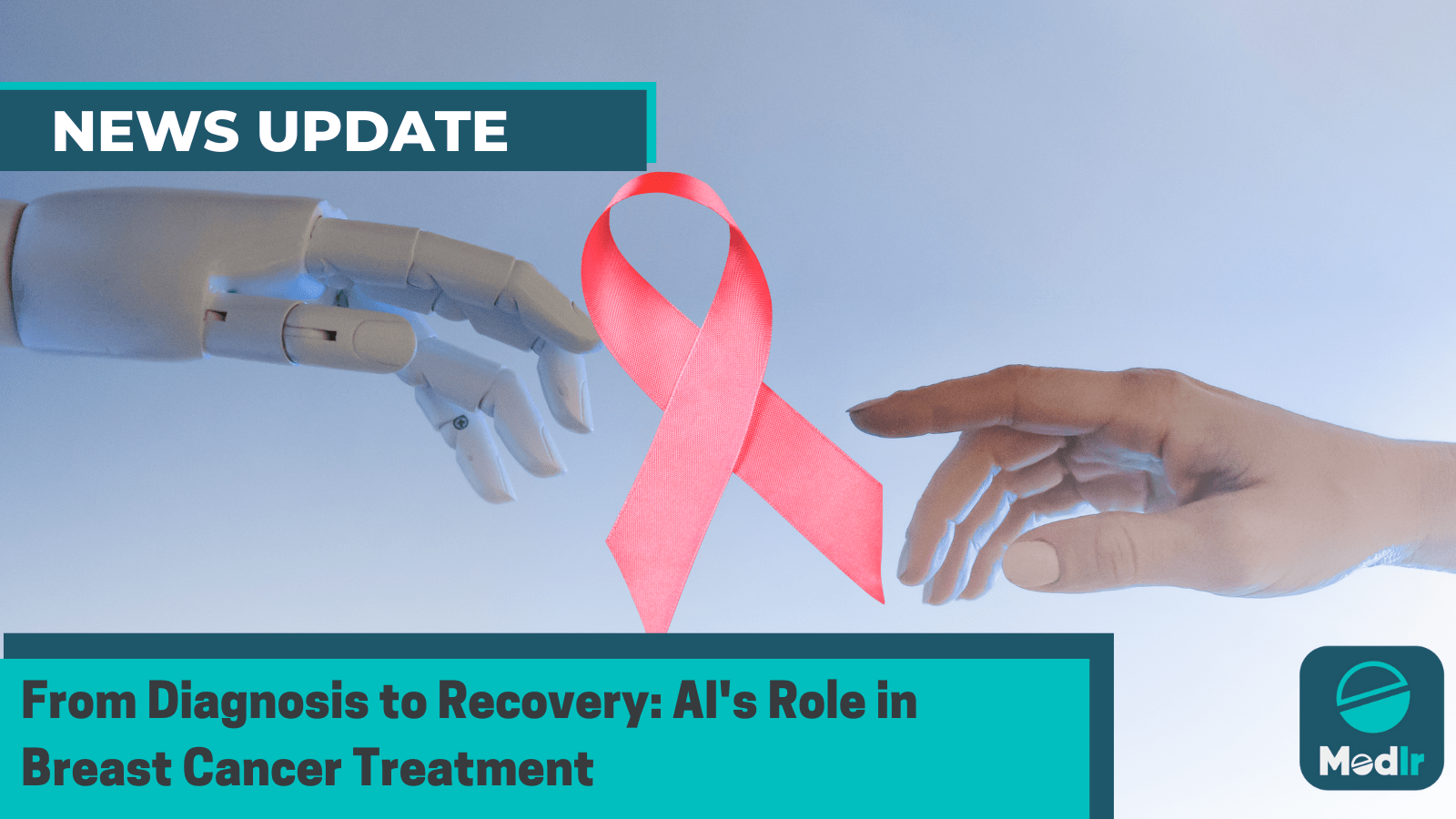From Diagnosis to Recovery: AI's Role in Breast Cancer Treatment
Written by Shaveta Arora
Discover how AI's predictive power transforms cancer care in India and Pakistan, offering hope and personalized treatment options for women battling breast cancer.

Breast cancer diagnosis can be overwhelming for individuals like Sarah, a 31-year-old newlywed with family hopes. The treatment process, including chemotherapy and hormonal therapy, and potential infertility concerns make the battle complex.
Fortunately, advancements in artificial intelligence (AI) have shown promise in revolutionizing cancer detection and personalized treatment. OncoStem Diagnostics, an Indian-based company, introduced CanAssist, a powerful prognostic test capable of predicting cancer risks for up to ten years.
By analyzing the expression of specific proteins, this AI-backed test aids doctors in determining the tumor's responsiveness to hormonal treatment and the need for chemotherapy. Sarah's story stands as a testament to the impact of AI in providing better outcomes for cancer patients, as she was one of the 2,500 individuals who avoided chemotherapy with the help of CanAssist.
Most Common Type of Cancer
AI's potential in cancer screening and early detection has been recognized since the 1980s, with machine learning models continuously improving performance through accumulated data. AI systems are now more advanced and perceptive, revealing nuances in medical images that human eyes may miss, especially in mammograms. However, it is crucial to consider the challenge of detecting tumors in dense breasts and addressing the limitations of current imaging techniques.
The Power of AI In Prediction
AI's predictive capabilities enable precise prognosis based on tumor characteristics, enabling personalized treatment planning. With vast data scales, AI can foresee cancer risks up to ten years ahead, empowering patients and healthcare professionals to make informed decisions and avoid unnecessary chemotherapy.
While AI has demonstrated groundbreaking potential in cancer detection, human intervention remains indispensable. Mehr-un-Nisa Kitchlew, an AI researcher and founder of RŌZ, emphasizes AI's limitless possibilities, including robotic surgery.
However, Manjiri Bakre, co-founder, and CEO of OncoStem Diagnostics, asserts that human doctors are far from obsolete. Despite AI's advancements, the intricacies of genetic patterns and personalized treatments still require human expertise. Errors may arise with AI, underscoring the need for human oversight and validation.
AI-based tests like CanAssist face accessibility challenges in India and Pakistan due to prohibitive costs, limiting potential benefits. Bridging this gap requires concerted efforts to make medical technologies accessible worldwide.
Need of Human Intervention
Kitchlew emphasized that AI holds limitless possibilities, including applications in robotic surgery.
On the other hand, Bakre asserted that human doctors still have much more to achieve and offer in the field of medicine. AI still has progress to make in comprehending genetic patterns and devising personalized treatment plans tailored to a patient's specific genetic disposition.